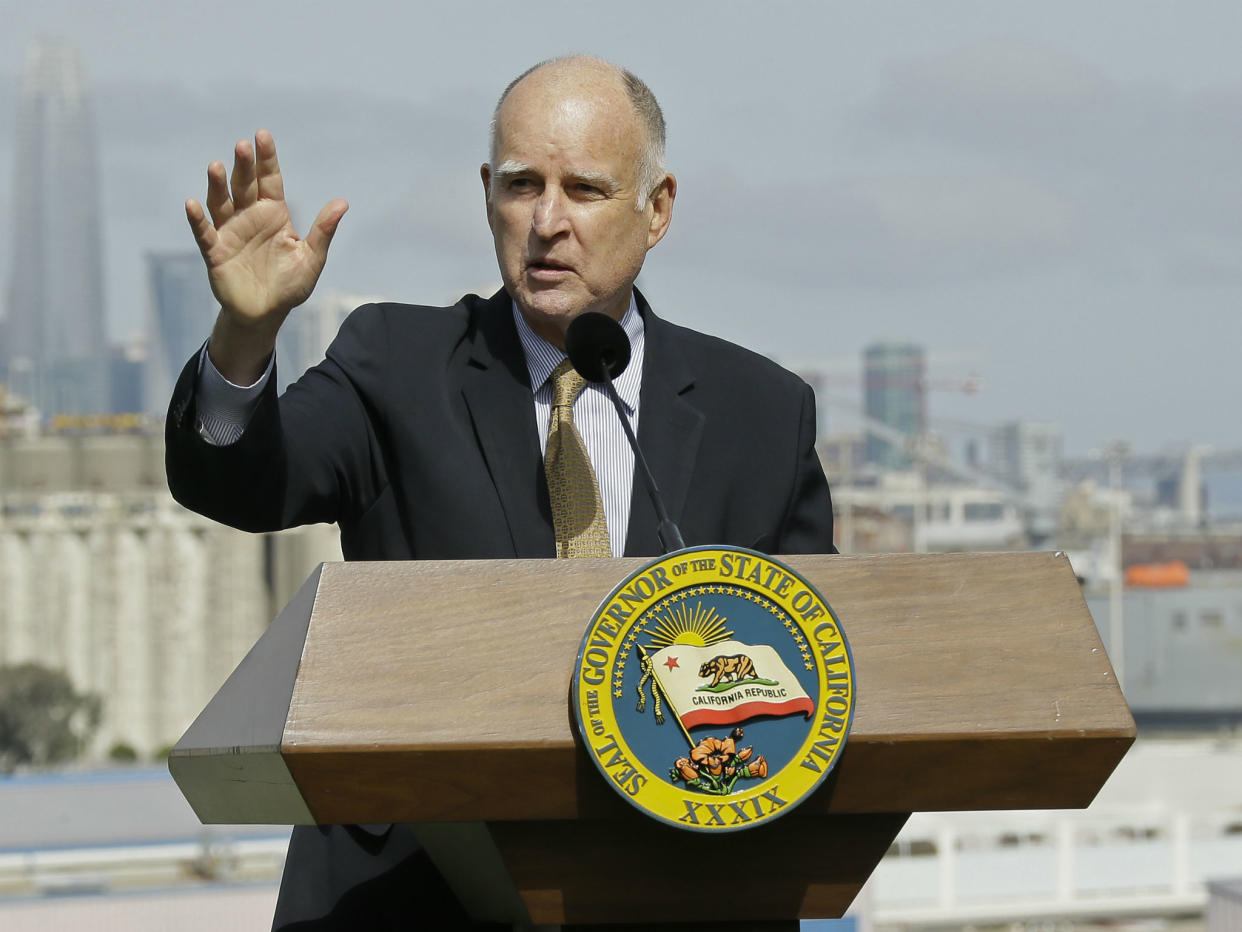California becomes 'sanctuary state' with law protecting immigrants from Trump

California Governor Jerry Brown has signed a bill sharply limiting the state’s cooperation with federal immigration authorities, continuing the liberal bastion’s campaign to defy Donald Trump’s immigration hardline.
After Mr Trump ascended to office promising to build a wall between American and Mexico, California moved to build a wall between law enforcement and Immigration and Customs Enforcement [ICE].
The state has the nation’s largest population of immigrants in the country illegally, and from the moment of Trump’s election its officials have vowed to prevent deportations. Cities and Attorney General Xavier Becerra have repeatedly sued the Trump administration over its efforts to crack down on so-called “sanctuary cities” that limit federal access to detained immigrants. The state has now enshrined that separation in law.
“These are uncertain times for undocumented Californians and their families”, Gov Brown wrote in a signing statement, “and this bill strikes a balance that will protect public safety, while bringing a measure of comfort to those families who are now living in fear every day”.
The bill Gov Brown signed bars police officers from asking suspects about their immigration status and outlaws a type of agreement that delegates immigration powers to local law enforcement. Counties will no longer be able to reserve ICE permanent desk spaces in jails.
It prohibits jails from complying with federal requests to hold onto immigrants past their release dates - a mechanism that has been ruled unconstitutional - and says they cannot notify federal authorities about planned release dates unless the suspect in question has committed a serious or violent crime. It creates a similarity high standard for transferring inmates into federal custody.
“California’s local law enforcement cannot be commandeered and used by the Trump administration to tear families apart, undermine our public safety and wreck our public safety”, California State Senate President Pro Tem Kevin de Leon said in a press conference, denouncing Trump as “xenophobic” and “racist” for slamming the president for using “fear and division to advance his political ambitions”.
Law enforcement groups that hold considerable sway in California’s Legislature wrung some concessions after opposing the bill on the grounds that it was overly broad and would shield dangerous criminals. A compromise expanded the list of crimes that, if an immigrant is convicted of one, allow police to interact with federal authorities.
The law does not entirely cut off the flow of information to federal authorities. The Federal Bureau of Investigation will still get fingerprints of people booked into jails, which it can then share with ICE, and immigration agents will still be allowed to interview immigrants in jails.
It also reaches beyond the criminal justice system, directing California to formulate guidelines that would keep ICE out of schools and courtrooms.
A legal challenge could be forthcoming. Trump administration officials have warned California against enacting the law. Acting ICE director Thomas Homan castigated the effort, saying “California politicians have chosen to prioritize politics over public safety”, and Attorney General Jeff Sessions - who throughout his career has maintained an unswerving focus on illegal immigration - called the measure “unconscionable”.
“The bill risks the safety of good law enforcement officers and the safety of the neighborhoods that need their protection the most”, Mr Sessions said during a speech in Portland, Oregon.

